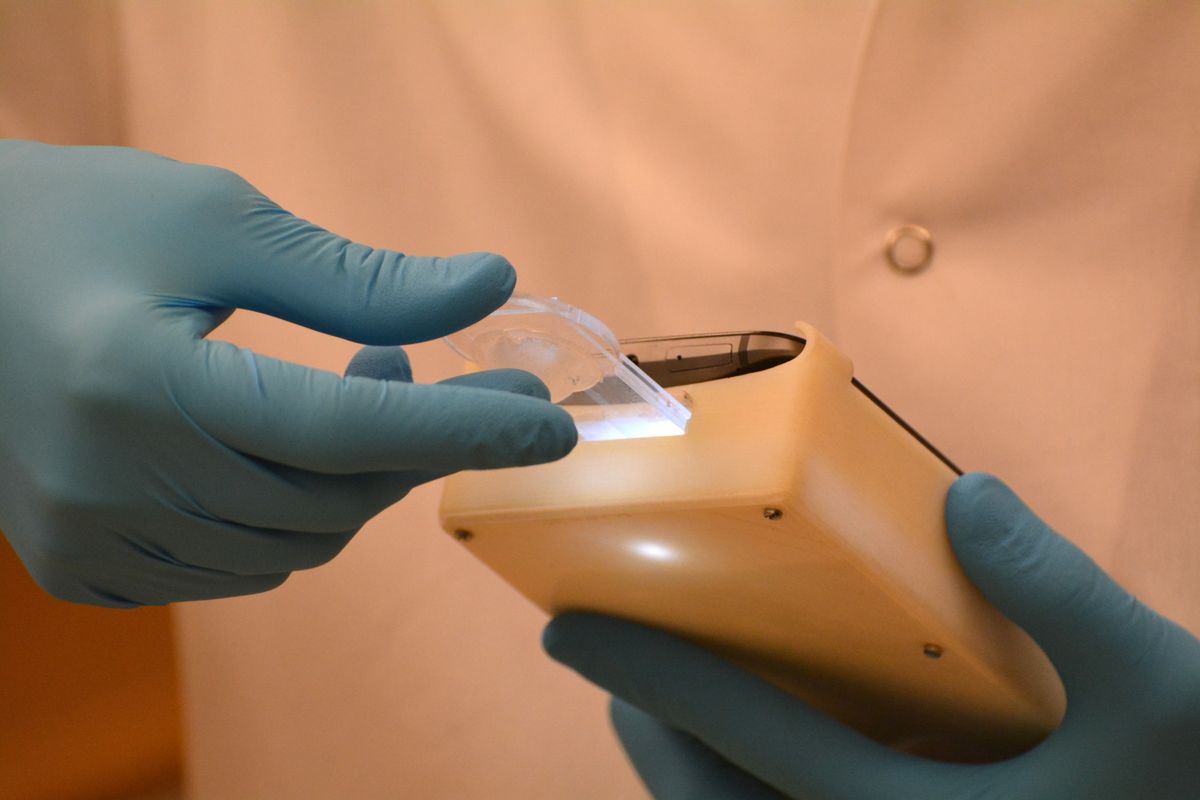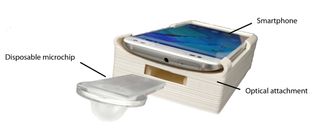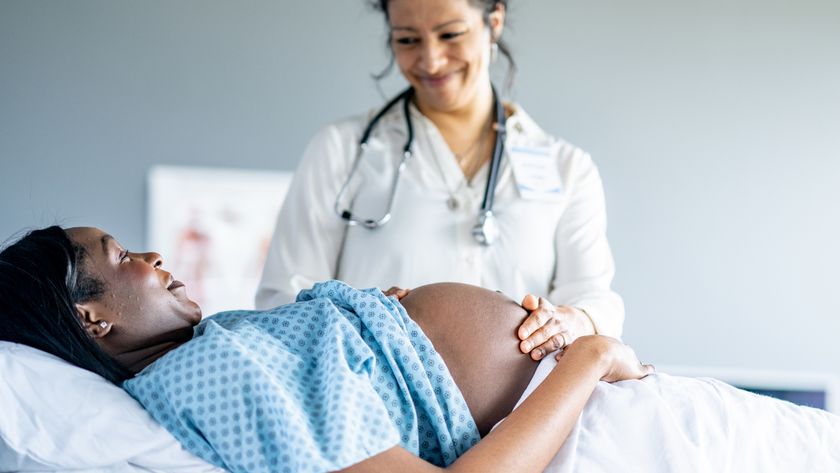There Is Now An App for Sperm Testing

A new device that attaches to a smartphone can detect whether a man's sperm concentration or motility is abnormal with 98 percent accuracy.
Researchers hope the device, which is about the size of a small box of crayons and costs less than $5 to make, can address the need for a rapid and cheap way to detect male infertility. Problems with sperm contribute to infertility in 40 percent to 60 percent of cases where a couple has trouble conceiving, said study leader Hadi Shafiee, a professor of engineering in medicine at Brigham and Women's Hospital and Harvard Medical School in Boston.
Current laboratory methods of semen analysis are either inaccurate or expensive and require men to provide a sperm sample in awkward circumstances. [Trying to Conceive: 12 Tips for Men]
"This device is going to make male infertility screening as simple as home pregnancy tests for a woman," Shafiee told Live Science.
Smartphone semen analysis
The device has two parts: a box-like piece that attaches to the phone as if it were a larger-than-normal phone case, and a chip, which is about the size of a microscope slide. To test his sperm, a man uses a pipette (a turkey baster-like tube, but smaller) to put a semen sample onto a chip, and then he inserts the chip into a slot on the box-like attachment. Lenses on the attachment essentially turn the smartphone's camera into a microscope, and a software app automatically counts the total number of sperm, calculates their concentration per milliliter and detects their movement and speed, or motility.

Over-the-counter sperm checkers available now measure only sperm concentration, Shafiee said, which isn't enough to determine a man's fertility; it's also important to know how effectively the sperm cells move.
The researchers had untrained users test the device using 350 semen specimens from the Massachusetts General Hospital Fertility Center. They found that the untrained testers could use the device to detect abnormal sperm samples with 98 percent accuracy. That rate is based on World Health Organization (WHO) criteria for an abnormal sperm sample, in which there are less than 15 million sperm cells per milliliter of fluid, and less than 40 percent of sperm are motile.
Sign up for the Live Science daily newsletter now
Get the world’s most fascinating discoveries delivered straight to your inbox.
The sensitivity of the test, or the ability to correctly diagnose abnormal samples, was 99.3 percent; the specificity, or the ability to correctly detect normal samples, was 89.4 percent. [Conception Misconceptions: 7 Fertility Myths Debunked]
The test cannot detect if a man's sperm has abnormal morphology — meaning the cells are misshapen or malformed, Shafiee noted. However, abnormal sperm morphology is a contributor to infertility in less than 1 percent of infertility cases, he said.
At-home testing
The test could be sold as an over-the-counter product, Shafiee said, but it might also be a boon for fertility clinics and small hospitals. Currently, the standard for semen analysis is a computer-and-microscope system called computer-assisted semen analysis (CASA). Those systems cost between $50,000 and $100,000, Shafiee said, so many smaller clinics can't afford them and resort to having the staff conduct manual sperm counts using a microscope. Manual counts are not as accurate as computer-based ones, Shafiee said.
The device might also be helpful for men who don't want to father any more children. There are 500,000 vasectomies in the United States each year, Shafiee said, and men are supposed to return to the clinic for follow-up analysis at least twice in the months following the procedure to ensure that it was successful.
But many men don't. "Something like 30 percent actually return," he said.
Offering men an at-home option could boost this compliance, Shafiee said.
The researchers published their findings in the journal Science Translational Medicine today (March 22). Their next step is to submit materials for Food & Drug Administration approval.
Original article on Live Science.

Stephanie Pappas is a contributing writer for Live Science, covering topics ranging from geoscience to archaeology to the human brain and behavior. She was previously a senior writer for Live Science but is now a freelancer based in Denver, Colorado, and regularly contributes to Scientific American and The Monitor, the monthly magazine of the American Psychological Association. Stephanie received a bachelor's degree in psychology from the University of South Carolina and a graduate certificate in science communication from the University of California, Santa Cruz.

'Love hormone' oxytocin can pause pregnancy, animal study finds

'Mini placentas' in a dish reveal key gene for pregnancy










